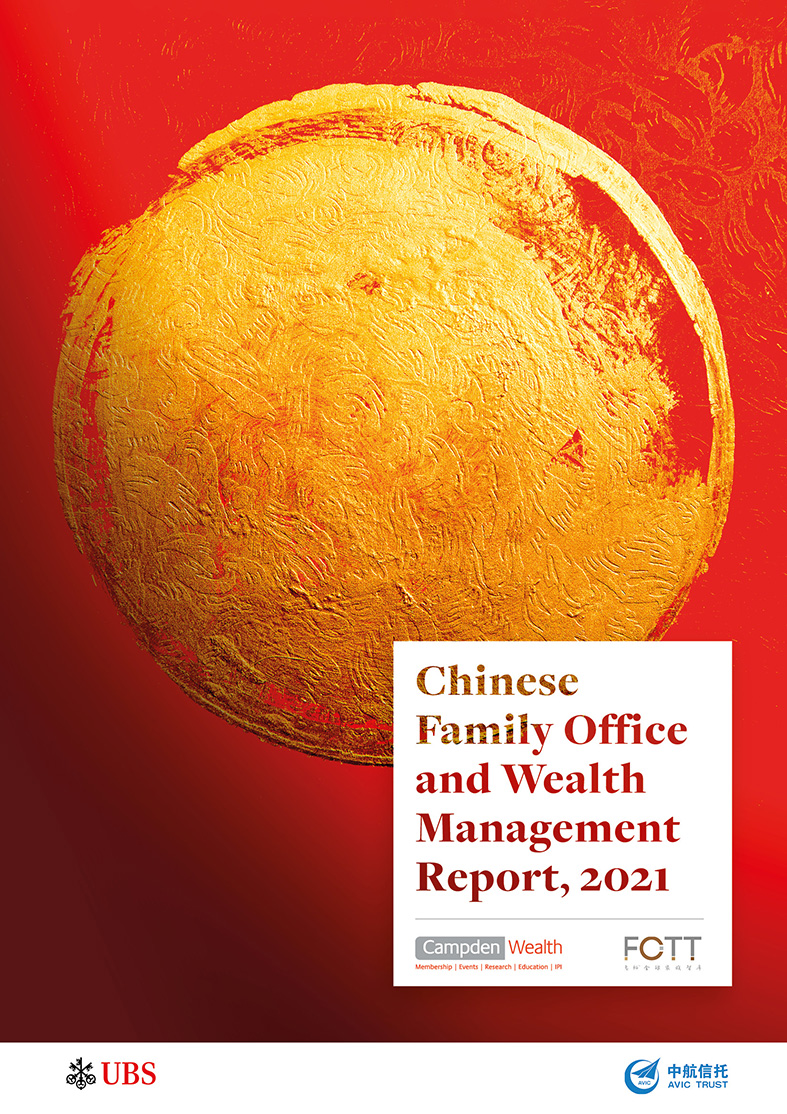Chinese wealthy turn to family offices for next generation succession planning

More resilient first-generation wealth holders in China, lagging behind global peers in formalising their inheritance plans, are opening family offices to train and support their solitary “ill-equipped” next generation successors in wealth preservation, investments and philanthropy.
New research by Campden Wealth also revealed China’s rapidly expanding and maturing family office space defied the Covid-19 pandemic by returning an average of 35% for direct private equity and 28% for equities over the past 12 months. Considerable upswings from the previous year’s performance figures of 19% and 13%, respectively.
However, in terms of succession risk, 63% of family offices believed the next generation was ill-equipped to take control of the family wealth. Almost half surveyed (42%) reported having an inadequate family office governance structure while 40% reported having an inadequate structure to manage family conflict.
These findings and more featured in The Chinese Family Office and Wealth Management Report 2021 by Campden Wealth, Family Office Think Tank (FOTT), UBS Global Wealth Management and AVIC Trust. The second annual edition of the report was launched by its researchers at a virtual press conference this week.
= The main reason for setting up or joining a family office was the hope to successfully plan and execute wealth succession (49%), followed by seeking investment tools (27%) and the desire to have both trading and investment platforms (22%).
= When choosing a financial service provider, almost all respondents listed trust and reputation as the most important criteria (both 98%).

= Regarding the question of how the next generation will participate in the family office, 56% of respondents choose to participate in projects and/or work experience, followed by management executive duties and board members (both 52%). Some 40% of respondents were willing to let the next generation participate in charitable activities.
= The most used governance structures for family offices were investment objectives/guidelines (28%), risk management and asset protection (25%). Only 13% of respondents adopted the method of declaration.
= Almost all (90%) of respondents said the most important challenges facing family offices were related to legal requirements and compliance, followed by creating investment returns to protect wealth (81%) and recruiting external talents (62%) or finding experienced Service providers (60%).
Fan Xiaoman, the founder of FOTT, said China’s wealth holders were not only successful in responding to the economic chaos caused by the epidemic, but also made progress in adapting to increasingly mature global wealth management trends.
“Family offices provide domestic wealthy families with a place to make themselves,” she said.
“This generation and future generations learn the skills of maintaining and increasing family wealth. Especially for Chinese families, they are faced with the challenge of safely passing on the wealth of the first generation to the next generation.

“Among the families surveyed in this study, only 39% have an inheritance plan, while the global average is 54%.”
Xiaoman said, in addition to using their family office as an investment tool, families should also make the family office play a role in the succession plan and let the family wealth and spirit be passed.
Lu Zijie (Marina Lui), head of UBS Wealth Management China and group managing director, said while China’s private wealth growth rate was obvious to all, there were more and more first-generation Chinese companies.
“The family is facing the issue of wealth inheritance,” she said.
“Both our daily experience and research reports show that Chinese wealthy people are more and more interested in family offices. We believe this will bring huge opportunities to wealth management institutions like UBS. Through in-depth research on the status quo of family offices in China, we hope to better understand the needs of our customers and escort their wealth.”

Nick Hayward, director of Campden Wealth Asia-Pacific, said the expansion of the Chinese family office space reflected the success of China’s economy.
“The global family office market continues to grow, with an overall asset management scale of at least 65 trillion yuan,” Hayward said.
“Campden Wealth will provide in-depth analysis of succession planning, share the benchmarks of Chinese families relative to global families, and insights into key factors that need to be considered when setting up a family office.”






